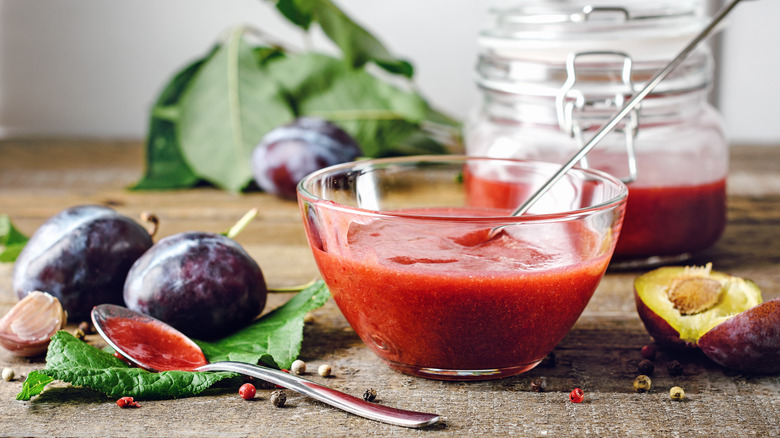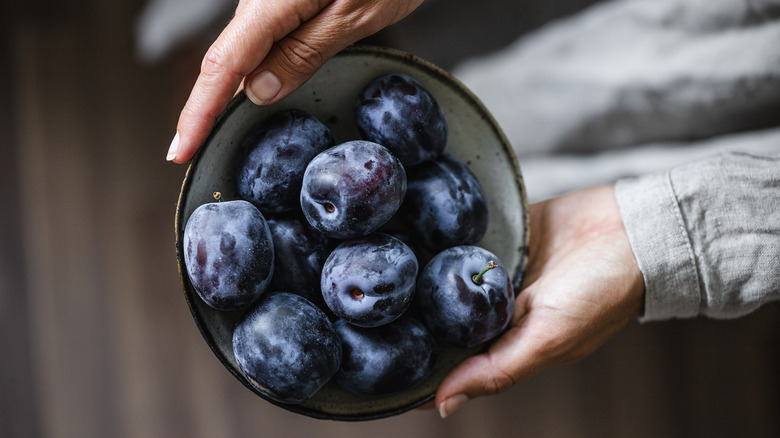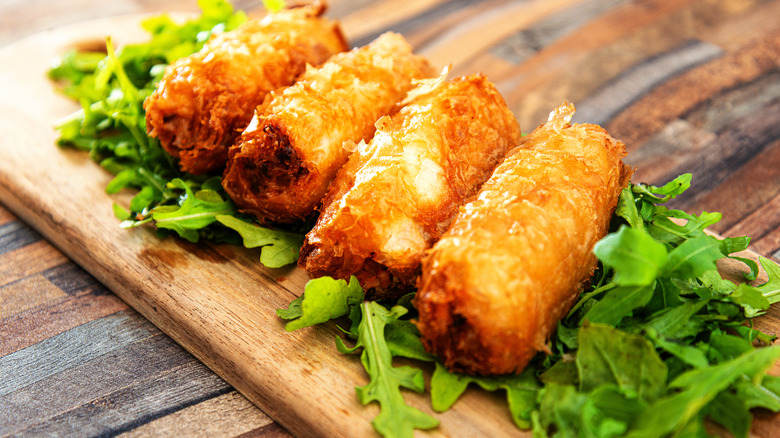The Type Of Plum To Steer Clear Of When Making Sauce
Fans of Chinese cuisine are no doubt familiar with plum sauce, a delightfully tangy accompaniment to appetizers as well as main courses like duck and pork. If you're inclined to make your own plum sauce at home, one of the most important aspects is selecting the right plum variety. In this case, European plums should be avoided, as their sweetness will disrupt the flavor balance of the sauce. This includes Damson, Moyer, El Dorado, and French plum varieties. If you're not sure, check out the shape of the fruit, as European plums are often oval.
Similarly, avoid using dried plums, aka prunes, in your sauce. European plums are commonly used to make prunes, which means you'll run into the same flavor issues as you would if you were using fresh versions. In addition to knowing which varieties to avoid when making plum sauce, you should also understand which plums are best suited to the recipe.
The best plums to use when making a savory sauce
Plum sauce is most often created using prunus salicina, also called Japanese or Chinese plums. While you can use a store-bought plum paste to make your sauce, you can also choose fresh plums, provided that you select the right variety. Fortunately, there's a wide range of Japanese/Chinese plums to choose from. Friar plums make for an excellent sauce selection thanks to their dialed-back sweetness. Moreover, the skin of the friar plum will impart a pleasing tartness to punch up the finished plum sauce.
Black ambers are another great selection for sauces, as this variety offers lots in the way of acidity and makes for a powerfully bright sauce. Santa Rosa, black beauty, and blood plum varieties can also work well in plum sauce thanks to the delicate balance of flavors. Of course, there are other flavor factors to consider besides the plum selection. You'll also need to decide what to serve with your plum sauce.
Pairings and ideas for using tasty, homemade plum sauce
One of the many amazing things about plum sauce is how well it meshes with a diverse selection of food. When it comes to dipping, the condiment is excellent with spring rolls, particularly those that contain pork. Tangy plum sauce helps temper the richness of pork while also elevating the flavors of vegetables like cucumbers and carrots. If you want the appetizer to have some more zing, you can incorporate a bit of sriracha into the plum sauce.
You can also use plum sauce to add flavor to stir-fry recipes. With chicken, flavoring agents are crucial to preventing the finished dish from being too bland. Plum sauce is perfect for permeating chicken with the right amount of sweet tanginess. Plum sauce also serves as a nice glaze for beef, especially when paired with ingredients like red onion, black pepper, and honey. No matter what you choose to pair it with, homemade plum sauce is sure to become a staple of your cooking arsenal.


